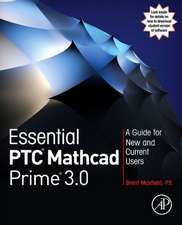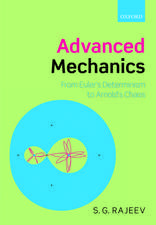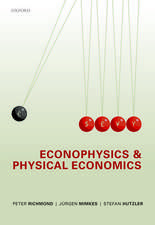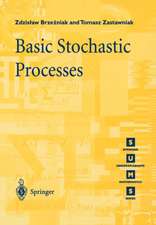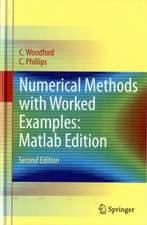The Fast Solution of Boundary Integral Equations: Mathematical and Analytical Techniques with Applications to Engineering
Autor Sergej Rjasanow, Olaf Steinbachen Limba Engleză Hardback – 15 mai 2007
The most prominent example is the potential equation (Laplace equation), which is used to model physical phenomena in electromagnetism, gravitation theory, and in perfect fluids. A further application leading to the Laplace equation is the model of steady state heat flow. One of the most popular applications of the BEM is the system of linear elastostatics, which can be considered in both bounded and unbounded domains. A simple model for a fluid flow, the Stokes system, can also be solved by the use of the BEM. The most important examples for the Helmholtz equation are the acoustic scattering and the sound radiation.
The Fast Solution of Boundary Integral Equations provides a detailed description of fast boundary element methods which are based on rigorous mathematical analysis. In particular, a symmetric formulation of boundary integral equations is used, Galerkin discretisation is discussed, and the necessary related stability and error estimates are derived. For the practical use of boundary integral methods, efficient algorithms together with their implementation are needed. The authors therefore describe the Adaptive Cross Approximation Algorithm, starting from the basic ideas and proceeding to their practical realization. Numerous examples representing standard problems are given which underline both theoretical results and the practical relevance of boundary element methods in typical computations.
| Toate formatele și edițiile | Preț | Express |
|---|---|---|
| Paperback (1) | 640.24 lei 6-8 săpt. | |
| Springer Us – 19 noi 2010 | 640.24 lei 6-8 săpt. | |
| Hardback (1) | 647.27 lei 6-8 săpt. | |
| Springer Us – 15 mai 2007 | 647.27 lei 6-8 săpt. |
Preț: 647.27 lei
Preț vechi: 761.49 lei
-15% Nou
Puncte Express: 971
Preț estimativ în valută:
123.87€ • 128.59$ • 103.29£
123.87€ • 128.59$ • 103.29£
Carte tipărită la comandă
Livrare economică 22 martie-05 aprilie
Preluare comenzi: 021 569.72.76
Specificații
ISBN-13: 9780387340418
ISBN-10: 0387340416
Pagini: 279
Ilustrații: XII, 284 p. 97 illus.
Dimensiuni: 155 x 235 x 21 mm
Greutate: 0.61 kg
Ediția:2007
Editura: Springer Us
Colecția Springer
Seria Mathematical and Analytical Techniques with Applications to Engineering
Locul publicării:New York, NY, United States
ISBN-10: 0387340416
Pagini: 279
Ilustrații: XII, 284 p. 97 illus.
Dimensiuni: 155 x 235 x 21 mm
Greutate: 0.61 kg
Ediția:2007
Editura: Springer Us
Colecția Springer
Seria Mathematical and Analytical Techniques with Applications to Engineering
Locul publicării:New York, NY, United States
Public țintă
ResearchCuprins
Boundary Integral Equations.- Boundary Element Methods.- Approximation of Boundary Element Matrices.- Implementation and Numerical Examples.
Recenzii
From the reviews:
"The theoretical and practical study of boundary element methods (BEM) has attracted a lot of attention in the past decades. The main feature of these methods is that one only requires discretization of the surface rather than of the volume of the body to be analyzed. … The present book is intended not only as a useful introduction to classical boundary element techniques but also to some recent developments concerning fast implementation." (María-Luisa Rapún, Mathematical Reviews, Issue 2008 g)
"The theoretical and practical study of boundary element methods (BEM) has attracted a lot of attention in the past decades. The main feature of these methods is that one only requires discretization of the surface rather than of the volume of the body to be analyzed. … The present book is intended not only as a useful introduction to classical boundary element techniques but also to some recent developments concerning fast implementation." (María-Luisa Rapún, Mathematical Reviews, Issue 2008 g)
Textul de pe ultima copertă
The use of surface potentials to describe solutions of partial differential equations goes back to the middle of the 19th century. Numerical approximation procedures, known today as Boundary Element Methods (BEM), have been developed in the physics and engineering community since the 1950s. These methods turn out to be powerful tools for numerical studies of various physical phenomena which can be described mathematically by partial differential equations.
The Fast Solution of Boundary Integral Equations provides a detailed description of fast boundary element methods which are based on rigorous mathematical analysis. In particular, a symmetric formulation of boundary integral equations is used, Galerkin discretisation is discussed, and the necessary related stability and error estimates are derived. For the practical use of boundary integral methods, efficient algorithms together with their implementation are needed. The authors therefore describe the Adaptive Cross Approximation Algorithm, starting from the basic ideas and proceeding to their practical realization. Numerous examples representing standard problems are given which underline both theoretical results and the practical relevance of boundary element methods in typical computations.
The most prominent example is the potential equation (Laplace equation), which is used to model physical phenomena in electromagnetism, gravitation theory, and in perfect fluids. A further application leading to the Laplace equation is the model of steady state heat flow. One of the most popular applications of the BEM is the system of linear elastostatics, which can be considered in both bounded and unbounded domains. A simple model for a fluid flow, the Stokes system, can also be solved by the use of the BEM. The most important examples for the Helmholtz equation are the acoustic scattering and the sound radiation.
The Fast Solution of Boundary Integral Equations provides a detailed description of fast boundary element methods which are based on rigorous mathematical analysis. In particular, a symmetric formulation of boundary integral equations is used, Galerkin discretisation is discussed, and the necessary related stability and error estimates are derived. For the practical use of boundary integral methods, efficient algorithms together with their implementation are needed. The authors therefore describe the Adaptive Cross Approximation Algorithm, starting from the basic ideas and proceeding to their practical realization. Numerous examples representing standard problems are given which underline both theoretical results and the practical relevance of boundary element methods in typical computations.
The most prominent example is the potential equation (Laplace equation), which is used to model physical phenomena in electromagnetism, gravitation theory, and in perfect fluids. A further application leading to the Laplace equation is the model of steady state heat flow. One of the most popular applications of the BEM is the system of linear elastostatics, which can be considered in both bounded and unbounded domains. A simple model for a fluid flow, the Stokes system, can also be solved by the use of the BEM. The most important examples for the Helmholtz equation are the acoustic scattering and the sound radiation.
Caracteristici
Provides an exact mathematical description of various mathematical formulations and numerical methods for boundary integral equations in the three-dimensional case in a unified and compact form a systematic numerical treatment of a variety of boundary value problems for the Laplace equation, for the system of linear elastostatics, and for the Helmholtz equation. Numerous examples representing standard problems are given which underline both theoretical results and the practical relevance of boundary element methods in typical computations Includes supplementary material: sn.pub/extras












